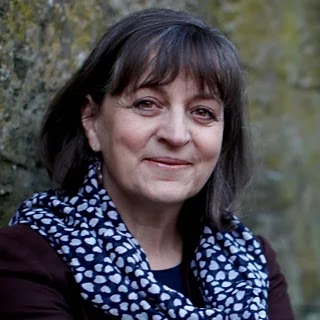Well, as I promised myself in February ('ITV, please repeat Breathtaking'), I have now read Rachel Clarke's wonderful and moving book Dear Life. It is what its subtitle says, 'a doctor's story of love and loss'. As a hospital doctor, she chose to specialise in palliative care. As someone said, she's the kind of doctor we'd all want at our sides when we're dying. Her profession is truly put to the test when her dearly loved father, a local GP of the old school, who is her inspiration, is diagnosed with terminal cancer. Her account is both heartbreaking and life-affirming. Significantly, she chooses to keep her counsel on the vexed subject of assisted dying - as does the subject of this piece, Dr Kathryn Mannix.
I first came across Dr Mannix, when she gave a very short talk on BBC Radio 4 in 2018. Her title was 'Dying is not as bad as you think'. It was a simple description of the normal process of dying - and it was not as bad I'd thought. If you've not heard it, it's certainly worth listening to. A few weeks ago she gave an interview to a Financial Times journalist, Emma Jacobs, in which she talked about herself, her books and about "ordinary dying". It's so much about the listening. Of course the journalist brings up the hot topic of assisted dying. I've previously commented on Esther Rantzen joining the advocates of legalising assisted suicide. She's since been joined by Keir Starmer, and most recently by Bake-Off judge, Prue Leith. Dr Mannix is more circumspect:
"Mannix fears for the texture of the debate. 'We can be opponents about an issue and agree with far more than we disagree about, but the point on which we disagree is so important to us . . . Increasingly [political debate] is about point-scoring.' It means that we fail to include nuanced conversations on palliative, social and healthcare. 'We’re not hearing any of that. We’re just having a ding-dong about where the law sits.'” She particularly fears for the sick and the elderly, who might have their peace of mind destroyed every day with the thought they are yet again being a burden to their family. (And I would add an unwanted expense to the state as well.) As her BBC talk taught me, dying is not as bad we are given to think.
More recently she's given a very personal interview in the BBC Outlook programme:
https://www.bbc.co.uk/sounds/play/w3ct4r4d. Listen to it! It's very reminiscent of Rachel Clarke's Dear Life. And it's magnificent.
"There’s something sad about the idea that the only way we can help [make] dying better is to be dead." Ordinary dying is even better. What wisdom!


Just caught up with this Michael. This is the gentle sympathetic but resolute approach that helps me be brave.
ReplyDeleteThank you, Mary. Kathryn Mannix has helped me to face up to dying - something we all have to do. Michael.
Delete